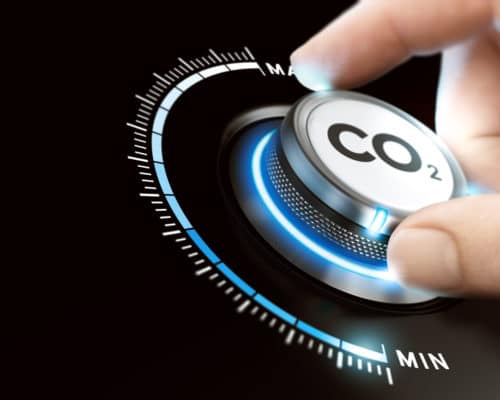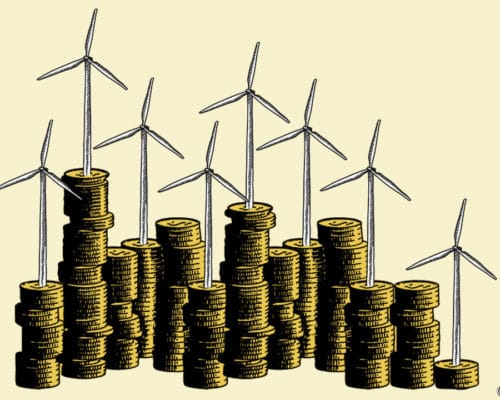Clean Energy Financing
Climate Change Impacts Are Worsening in 2022 and COP27 and G20 Leaders Need to Respond
A new study reveals the massive proportion of climate disasters all across the world, proving that no country is safe from climate change's impacts. Climate financing for mitigation, adaptation and loss and damage should be central to the COP27 and G20 meeting agendas later this year.
Green Bonds: Sustainable Financing Tools or a Greenwashing Weapon?
In a bid to reduce greenwashing possibilities, the EU now requires increased transparency and strict reporting for sustainable bonds. However, the rest of the world is still dragging its feet, leaving the door open for greenwashing on both state and corporate levels.
MHI First Transition Bond Program – All You Need to Know
Instead of the innovative green financing mechanism they were supposed to be, transition bonds have become the perfect tool for greenwashing. MHI's first transition bonds program can either accelerate the company's net-zero efforts or further distance it from carbon neutrality. The key is in MHI's hands.
The Cost of Sustainability for Asia is Lower than the Benefits
As one of the most vulnerable regions to climate change, Asia has virtually nothing to lose from the looming energy transition. While investments are needed, the cost of sustainability is negligible compared to what the continent stands to gain.
The Economic Benefits of Renewable Energy for Asia: Crunching the Numbers
The transition from fossil fuels to renewable energy in Asia will unleash massive economic benefits, including expanding the job market, ensuring steady GDP gains and hedging the unpredictable fossil fuel prices.
Importance of Climate Finance and Climate Change to Strengthen Global Solidarity
Analysts are clear: climate financing is insufficient and unevenly distributed. Developing Asian countries, especially those in the south, have to be the most concerned, considering they are the most vulnerable to climate crisis impacts.

3 Best Carbon Capture Stocks 2022: Investing in a Growing Industry to Reduce Carbon Emissions
Publicly traded carbon capture companies range from startups to established fossil fuel majors. The industry is still fairly young, but market predictions show that carbon capture technology will grow significantly over the next several decades. For investors, this provides the opportunity to support the energy transition while investing in a possibly lucrative industry.

The ARE Banking Report – How the Banks That Have Financed Emissions Can Change
Climate change will hit Asia the hardest, so local banks should act with urgency. However, Asian banks are lacking when it comes to their decision-making and sustainability policies.

The IMF’s Role: Economic Impacts of Climate Change on The Global Economy
Can the IMF create and implement economic policies to help countries through climate impacts?

Is “Greenflation” behind Higher Global Energy Prices?
Greenflation is a real risk on the mind of many renewable energy experts and rising commodity prices could increase the cost of the energy transition.
Energy Transition Fund – Capitalising on Renewable Energy
The global change to renewable energy has largely been financed by governments and public institutions but the energy transition cannot be fully funded by governments. There is significant room for the private sector to become more involved.
The Role of the Asian Development Bank in Southeast Asia’s Energy Transition
To ensure a seamless and successful energy transition, ASEAN countries should actively pursue public funding, regional cooperation and energy market redesign. How is the Asian Development Bank aiding the transition to clean energy?
Can Governments Implement Behavioural Change for Energy Transition?
While governments and big business are often held responsible for emissions, consumers also play a role. Behavioural change of consumers can influence change in both businesses and governments. These changes can drive impacts like subsidy swaps, fossil fuel funding restrictions, and global policies.
How Banks Are Making It Hard to Fight Climate Change
While banks are increasingly looking to diversify into climate-friendly portfolios, many institutions continue to back coal. Due to their increased responsibility and influential role in fighting climate change, banks should aim to end support for coal expansion and redirect financing towards renewable energy projects.
Most Popular
Categories
-
9
-
31
-
127
-
4
-
17
-
39
-
50
-
14
-
10
-
15
-
23
-
6
-
153
-
161
-
23
-
1
-
22
-
29
-
36
-
64
-
14
-
74
-
40
-
17
-
6
-
28
-
20
-
84
-
243
-
20
-
35
-
31
-
9
-
41
-
35

